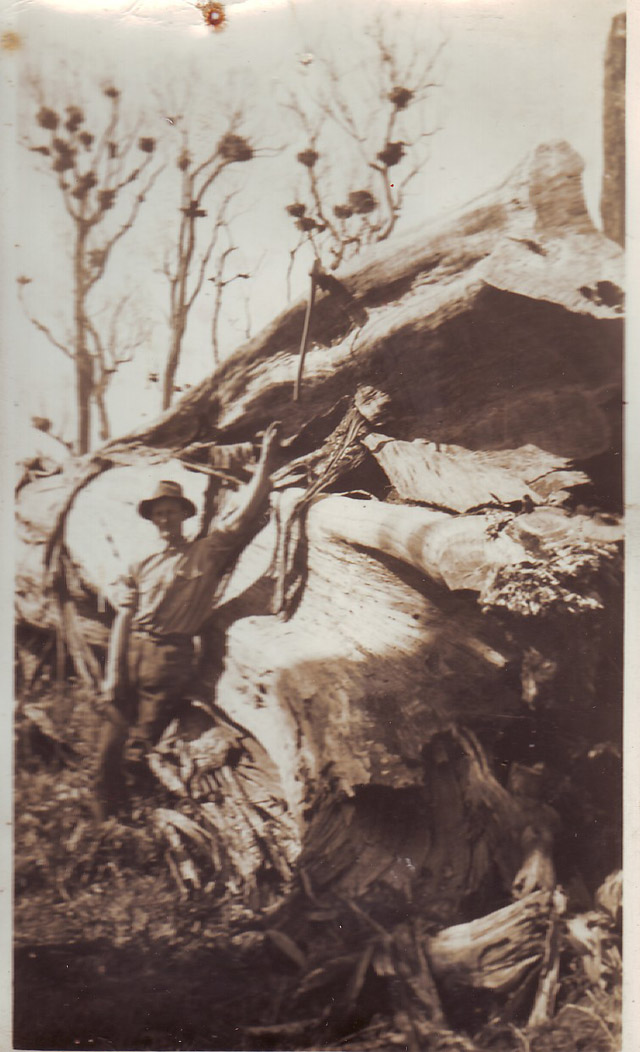.jpg)
My parents were what one might call 'thrifty' as many of their generation were. This was a generation who had come through the Great Depression in the late 1920s and early 1930s.
As a farming family, they had needed to live on very little actual income at times (although they had assets in the way of the land and stock), and my father was a 'bush carpenter' of note and could make the family comfortable by making almost anything at all from the materials at hand.
Many families of that generation have similar stories to tell.
Every cent was saved, and money not spent was considered providential. Households shared with each other to help with costs; a neighbour might help with renovations and in return be provided with some vegies from the garden.
The baby-boomer generation were raised by that generation and such ideas on money were ingrained into them as children. As they grew up and the post-war economy boomed, consumerism took off in Australia, particularly with powerful television promotions, along with the notion of credit (buy now and pay later), money became more available.
Their own children became used to greater assess to Government benevolent funding such as Youth Allowances, and therefore more disposable income, greater use of lines of various kinds of credit, money in some sense was seen as growing on trees. There was no limit and personal debt began to hit crisis point.
.jpg)
Money
But for many Christian people, money was seen and is still viewed in a completely different light. This was no more exemplified than in the Songs of Praise program shown on Austar some time ago across Australia.
Three British situations were shown to the viewer of Christian people. The first was a very wealthy businessman who explained that money was light through his fingers as he gave to Christian mission. The second was an upwardly mobile couple who had everything and decided to join YWAM (Youth With A Mission) to serve on board their mission ship And the third, a former criminal who had so much money through ill gotten gain that he found money had become a burden on his soul.
In each of these situations, like thousands like them, money lost its lustre, there was something much more important in life than the gaining of money.
The Proverbs are full of instruction about money: "Honour the Lord with your wealth, with the first fruits of all then your barns will be filled." (Proverbs 3: 9-10.) Our family has lived as faith financed missionaries for 42 years and we know the bible text and have seen over and over again how this works out in practice. The biblical principle is that the more you give with a true heart the Lord returns in abundances.
There is likewise good counsel in money wisdom in Proverbs 22: 6-7. "Train up a child in the way he should go, even when he is old he will not depart from it. The rich riles over the poor, and the borrower becomes the lender's slave." And again, "Do not be a man who … puts security for debts … your very bed will be snatched from under you." Proverbs 22: 26-27).
Teaching young people to purchase what they can afford and nothing more is part of any parent's instructions to their children. What looks like the fast lane to plenty can become the sure road to poverty.

Family
I recall when my eldest was about seven years of age and we were at K-Mart at Christmas time and she had five twenty-cent pieces in her hand. She asked whether she could purchase the little decorative Santa for the Christmas tree at home which had a $1 price tag.
While the ‘check-out’ girl watched on with interest, I explained to my daughter she was entitled to purchase the decorative Santa, however, to do that, she would never see those five twenty-cent pieces again,. They would be gone forever and all she would have to show for it - was the decorative Santa that would be put away in the drawer in a week’s time.
My daughter literally weighed up the five twenty-cent pieces in her right hand, and at the same time, the decorative Santa in the other, and after a few seconds, put the Santa back on the shelf. The check-out girl watched on with great interest and acknowledged the wisdom my daughter.
Our family can attest that this daughter has never spent those five twenty-cent pieces; and her frugality has been to the benefit of her own family (including a daughter of her own) now.
The Bible teaches us on the one hand to be wise when it comes to the myriad possibilities of losing money foolishly; yet on the other hand teaches the Lord's followers to be generous and happy givers to the things of the Kingdom. The Lord is never any man's debtor.
.jpg)
 Dr Mark Tronson is a Baptist minister (retired) who served as the Australian cricket team chaplain for 17 years (2000 ret) and established Life After Cricket in 2001. He was recognised by the Olympic Ministry Medal in 2009 presented by Carl Lewis Olympian of the Century. He mentors young writers and has written 24 books, and enjoys writing. He is married to Delma, with four adult children and grand-children. Dr Tronson writes a daily article for Christian Today Australia (since 2008) and in November 2016 established Christian Today New Zealand.
Dr Mark Tronson is a Baptist minister (retired) who served as the Australian cricket team chaplain for 17 years (2000 ret) and established Life After Cricket in 2001. He was recognised by the Olympic Ministry Medal in 2009 presented by Carl Lewis Olympian of the Century. He mentors young writers and has written 24 books, and enjoys writing. He is married to Delma, with four adult children and grand-children. Dr Tronson writes a daily article for Christian Today Australia (since 2008) and in November 2016 established Christian Today New Zealand.
Mark Tronson's archive of articles can be viewed at http://www.pressserviceinternational.org/mark-tronson.html

Dr Mark Tronson - a 4 min video
Chairman – Well-Being Australia
Baptist Minister 45 years
- 1984 - Australian cricket team chaplain 17 years (Ret)
- 2001 - Life After Cricket (18 years Ret)
- 2009 - Olympic Ministry Medal – presented by Carl Lewis
- 2019 - The Gutenberg - (ARPA Christian Media premier award)
Gutenberg video - 2min 14sec
Married to Delma for 45 years with 4 children and 6 grand children